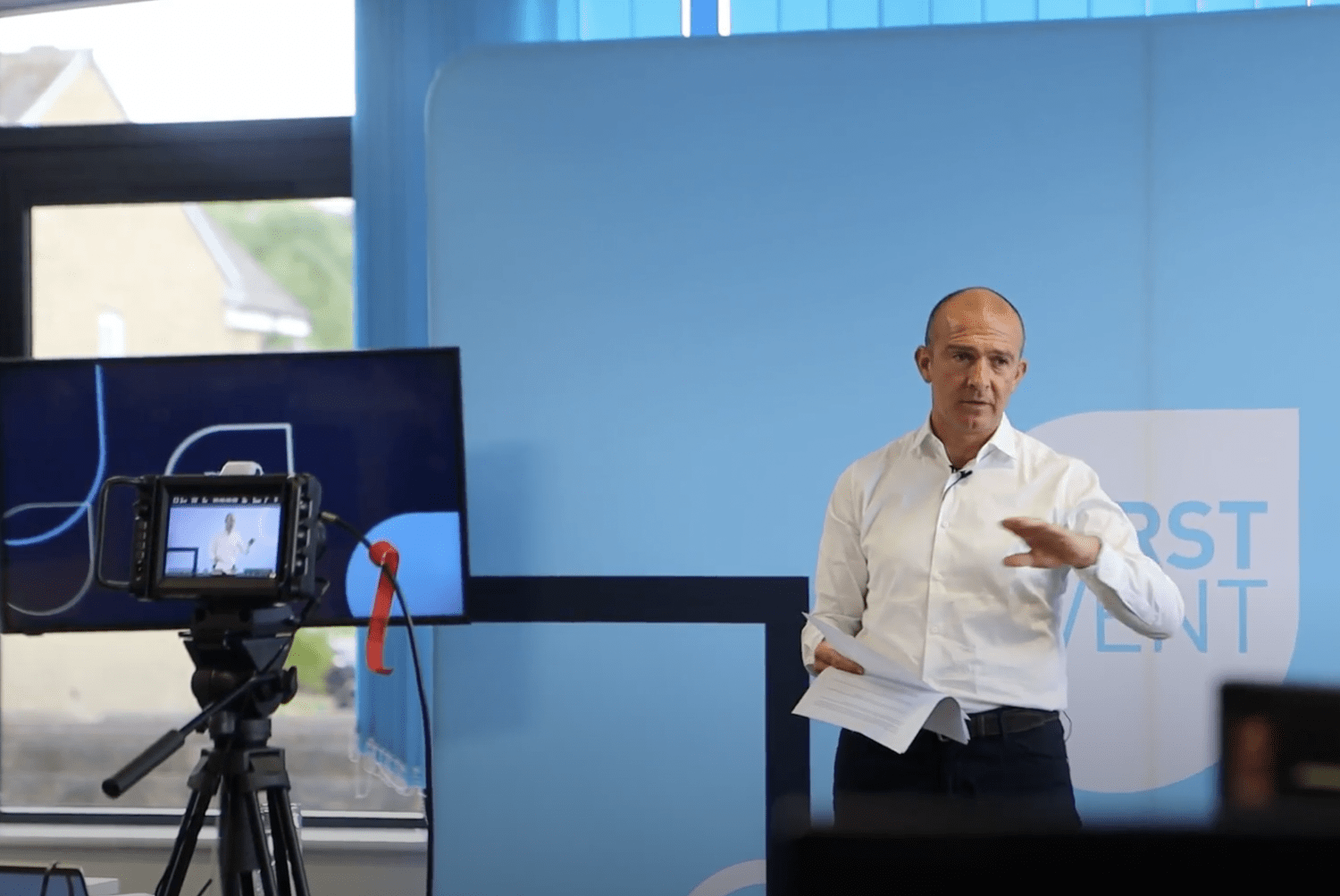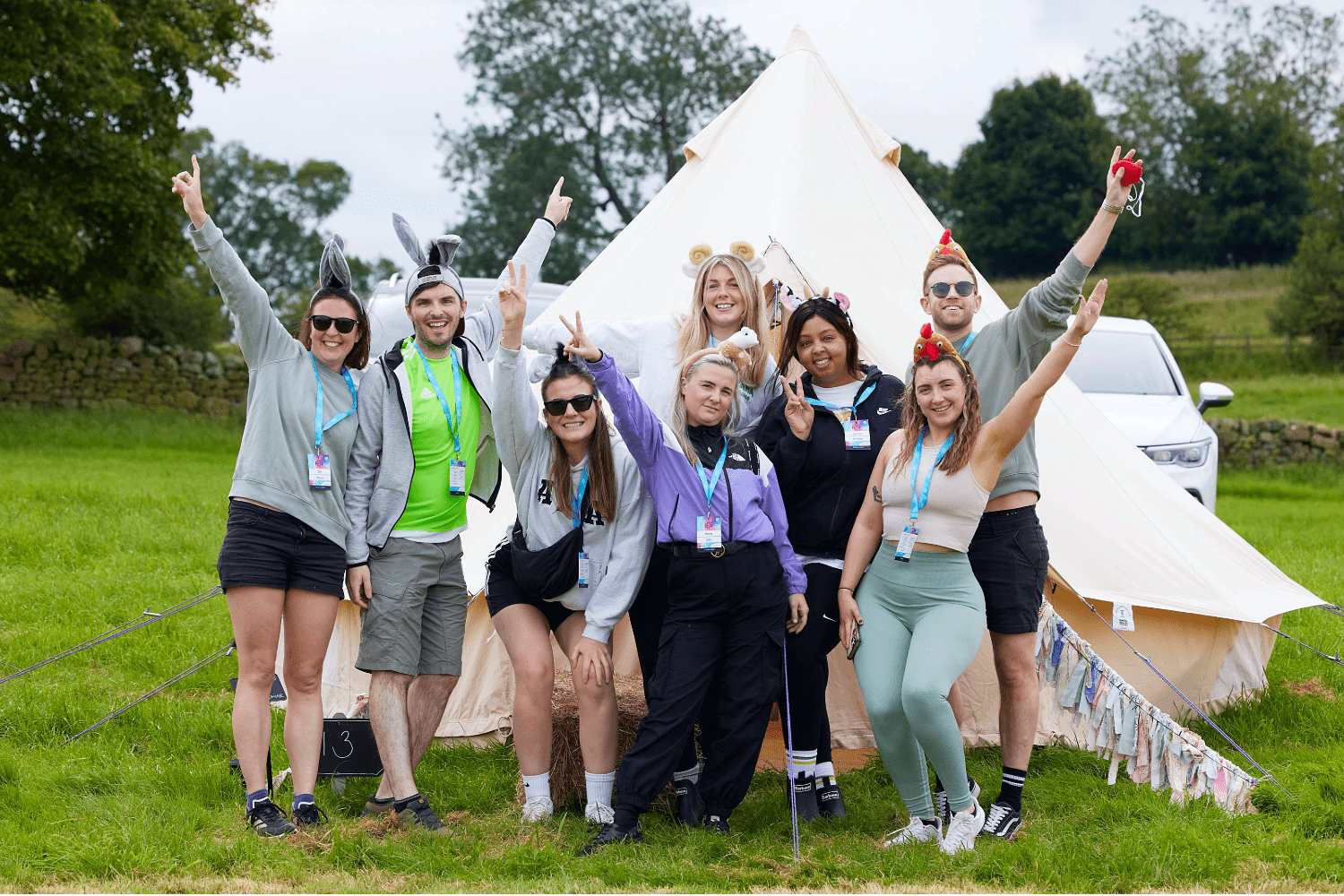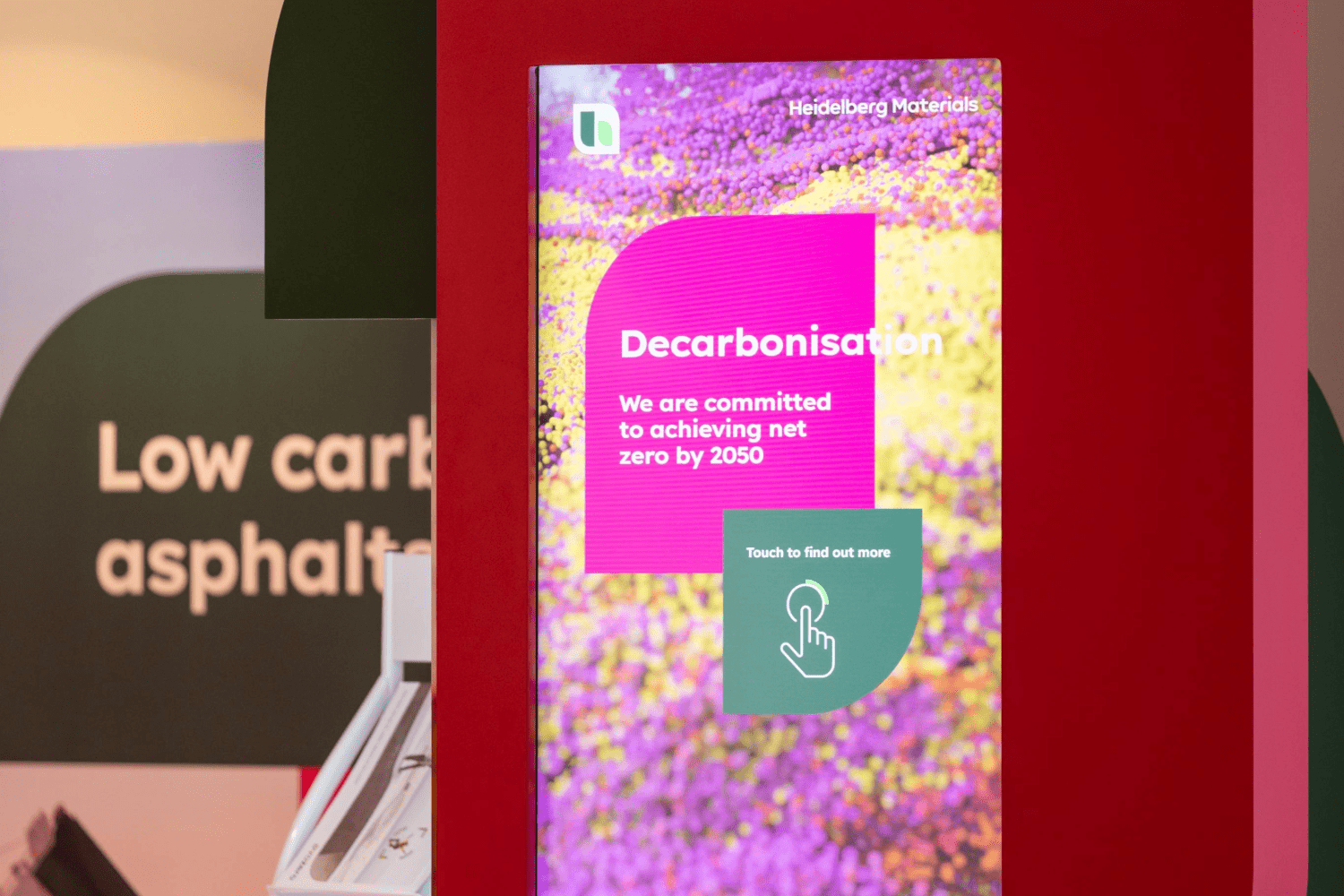 Back to News Room
Back to News Room
News

Using studio, hybrid or full virtual events in your event strategy
Corporate events are used to achieve a range of business goals and can include anything from rewarding incentives to award ceremonies.
Heralded as one of the “most powerful marketing tools out there”, events are invaluable as they allow direct contact with your targeted audiences and offer the chance to engage them in an immersive environment.
Whether it’s to drive sales, build brand awareness, infiltrate new markets, or show people that you care, live events can be a key part of any strategy for growth.
The rise in virtual event technologies has made it even easier to reach new audiences and deliver timely communications. Let’s look at how virtual events can be combined with your live event strategy, and how you can use them to achieve your business goals.
Creating an events strategy
Firstly, any event you deliver should link back to wider company goals, even if it’s something like an annual Christmas party. Here you may want to be able to improve team relationships or drive reward and recognition. Or you may be looking to use events to launch a product or build new partnership opportunities.
Ensuring that the types of events you choose align with specific company goals will help you to develop a successful events strategy that addresses your top priorities.
- Events should be integrated into wider marketing, sales or internal engagement activities used to drive the same company goal.
- Any resources needed should be reviewed early on, to ensure that you can achieve the kind of results you’re looking for. You will need additional budget and time for things like design and marketing as well as the actual event costs.
- A calendar of competitor or industry events and any potential clashes should be created for the year to help you maximise attendance.
- Working with an event management provider can help you to marry your event with your other organisational activities and goals whilst gaining access to their expertise and resources.
It’s important to look out for any wider trends in the event industry to find the latest ways companies are engaging with their audiences. Virtual events are becoming more popular with the increase in remote working, and have been widely used to enhance physical events for a lower average audience cost.
Here are some of the ways you can implement digital solutions into your events strategy, to conveniently communicate with attendees virtually or to reach a wider audience from your physical events.
Studio events
Studio events are great for reducing the costs of using a large physical event space, or if you have limited space in which to reach a wide audience.
Studio events use a temporary event set-up in a chosen location, and this is live-streamed to allow people to watch from anywhere.
The studio event could feature a main presenter or panel, and the audience could interact with them live or watch on-demand from a dedicated website.
This format would work particularly well for internal company updates educating global teams, as it could be filmed from one branch and conveniently accessed by remote staff.
A studio event could also be used for a series of product launches linking to a main live event, featuring Q&As and polls before the main launch to gain valuable feedback.
Hybrid events
Hybrid events give attendees the same immersive feel and atmosphere from a physical event, whilst being more accessible in a virtual space.
With this format you would carry out the live event as planned, but stream the event to an online audience, so they can join in as well.
Hybrid events would be great for any event type, but especially for large-scale networking events like tradeshows or conferences.
The ability to reach a wider online audience could massively drive event targets like revenue or sales. The hybrid event also helps with message retention because of the on-demand content and materials available after the event - this is also good for the environment!
Find out more about hybrid events below.https://www.youtube.com/embed/GqusECyGjAY
Full virtual events
Going fully virtual can offer a faster turnaround time for an event and lower the overheads of a physical one.
With the right technical support and preparation, a full virtual event can be a great alternative to live conferences or seminars, team building events, and even exhibitions.
Just like a physical event, you can entertain audiences with speakers, interactive sessions and breakouts, and deliver materials for attendees to use beforehand. We recently ran a virtual team building masterclass which included cocktail making ingredients being delivered to people’s doors ahead of the live session where an expert mixologist then guided them through a cocktail making class.
There are many ways to get creative and provide memorable experiences from a virtual event, the best part is that you can reach people from anywhere.
Summary
Virtual events can be beneficial for a number of wider company goals that are traditionally targeted through an events strategy. As well as adding more virtual elements to physical events, you may want to consider hosting a fully virtual event, if it aligns with your business goals and would give you similar results to a live event.
Whilst physical events may well provide the best opportunities to connect in meaningful ways to your audiences, virtual solutions offer a lot of options to carry out your events strategy in creative ways and on a potentially wider level.
Here’s a quick wrap-up of the virtual solutions we’ve covered in this blog and what goals they could effectively contribute to.
Studio events
- Educational goals - internal and external training.
- Brand awareness - thought leadership, marketing.
- Internal communications - achieving KPIs, increasing employee retention figures.
- Driving revenue - sales kick-offs, marketing & networking.
Hybrid events
- Brand awareness - marketing & networking, thought leadership.
- Internal communications - increasing employee retention figures, celebrating success, reward and recognition incentives.
- Driving revenue - promotional events, sales kick-offs, infiltrating new markets.
- Networking - developing sponsor, partner and investor relations.
Full virtual events
- Educational goals - internal and external.
- Brand awareness - marketing & networking, thought leadership.
- Internal communications - increasing employee retention figures, achieving KPIs, celebrating success, reward and recognition incentives.
- Driving revenue - marketing, sales kick-offs, infiltrating new markets.
- Networking - developing sponsor, partner, and investor relations.




